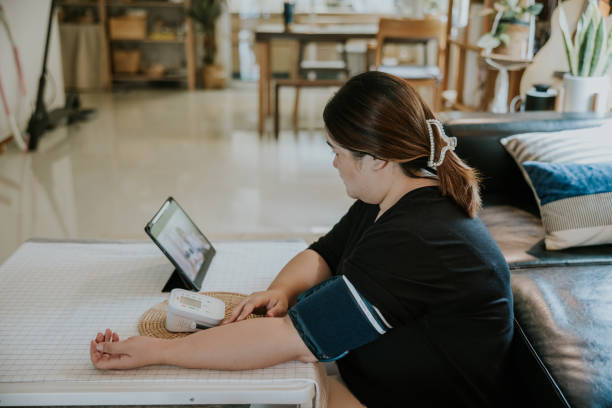High Blood Pressure (HBP), also known as Hypertension, is a common medical condition that affects millions of people around the world. It occurs when the pressure of the blood flowing through the blood vessels is consistently higher than normal. This can lead to serious health problems, including heart disease, stroke, and kidney disease. It is essential to understand the symptoms of HBP and the treatments available to manage it.
Symptoms of High Blood Pressure:
One of the most significant challenges of HBP is that it often does not have any noticeable symptoms. As a result, many people with HBP are unaware that they have it. However, some people may experience symptoms, such as:
Headaches
Dizziness
Blurred vision
Chest pain
Shortness of breath
Blood in the urine
These symptoms can indicate that HBP has caused damage to other parts of the body, such as the brain, heart, or kidneys. If you experience any of these symptoms, it is essential to seek medical attention.
Treatment for High Blood Pressure:
There are several treatment options available for HBP, including lifestyle changes, medications, and procedures. The type of treatment recommended will depend on the severity of the HBP, the presence of other medical conditions, and individual preferences.
Lifestyle Changes:
Making lifestyle changes can help to lower HBP, reduce the risk of HBP-related complications, and improve overall health. These changes include:
Eating a healthy diet that is low in salt and high in fruits, vegetables, and whole grains
Exercising regularly
Maintaining a healthy weight
Quitting smoking
Limiting alcohol consumption
Reducing stress through relaxation techniques or counseling
Medications:
There are several types of medications that can be used to lower HBP, including diuretics, beta-blockers, ACE inhibitors, calcium channel blockers, and angiotensin receptor blockers. Your doctor will determine the best medication for you based on your medical history, other medical conditions, and your individual needs.
Procedures:
In some cases, HBP may require more invasive treatments, such as angioplasty or heart surgery. These procedures can help to restore normal blood flow and reduce the risk of HBP-related complications.
Conclusion:
High Blood Pressure is a serious medical condition that can lead to serious health problems if left untreated. By understanding the symptoms and treatments available, individuals can take steps to manage HBP and reduce their risk of related health problems. If you suspect that you have HBP, it is essential to seek medical attention. Your doctor can help you determine the best treatment plan to manage your HBP and improve your overall health.

 Home
Home Health
Health Diet & Nutrition
Diet & Nutrition Living Well
Living Well More
More












